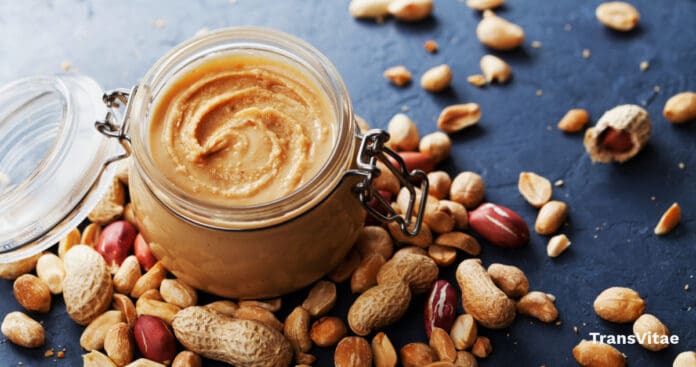Peanut butter, the creamy and delicious spread, isn’t just a childhood favorite. It’s also a nutritious addition to a healthy diet. Let’s delve into the world of peanut butter to understand its benefits, fun facts, and potential concerns.
Peanut Butter Nutritional Benefits
- Protein Power: A single serving packs around 7-8 grams of protein, making it a valuable source for vegetarians, athletes, and anyone looking to boost their protein intake. Protein is essential for building and repairing muscle tissue.
- Healthy Fats: It is rich in heart-healthy monounsaturated and polyunsaturated fats. These fats can help lower bad cholesterol (LDL) and raise good cholesterol (HDL), improving your overall heart health.
- Fiber Source: It contains dietary fiber, contributing to better digestion and gut health. Fiber makes you feel fuller for longer, aiding in weight management.
- Vitamins and Minerals: It boasts a variety of essential vitamins and minerals like vitamin E, a powerful antioxidant; magnesium, important for bone health; potassium, which helps regulate blood pressure; and vitamin B6, vital for brain development.
Peanut Butter Fun Facts
- Arachibutyrophobia: Ever heard of the fear of peanut butter sticking to the roof of your mouth? It has a name: arachibutyrophobia!
- National Peanut Butter Lovers Day: The United States celebrates its love for peanut butter with a dedicated day on March 1.
- President Jimmy Carter: Did you know President Jimmy Carter was a peanut farmer before entering politics?
- George Washington Carver: While George Washington Carver didn’t actually invent peanut butter, he did popularize it with hundreds of recipes and uses for the humble peanut.
Concerns about Added Sugar
While peanut butter offers many benefits, not all varieties are created equal. Some commercial brands contain excessive amounts of added sugar, which can negate the health benefits. Here’s what you need to know:
- Empty Calories: Added sugar provides calories without substantial nutritional value. Consuming excess sugar can lead to weight gain, increase the risk of type 2 diabetes, and contribute to heart disease.
- Check the Label: Always read the ingredient list carefully. Opt for natural peanut butter (ANPB) with minimal ingredients—ideally, just peanuts and maybe a pinch of salt.
Enjoying Peanut Butter in a Healthy Way
To reap the maximum benefits of this versatile spread:
- Choose Wisely: Pick natural or unsweetened brands.
- Portion Control: Remember, peanut butter is calorie-dense. Stick to the recommended serving of about two tablespoons.
- Pair it Up: Enjoy it with whole-wheat bread, fruits like apples or bananas, or add it to smoothies and oatmeal for a healthy energy boost.
RELATED: Chocolate Peanut Butter Collagen Oats
The Bottom Line
Peanut butter, in its natural form, is a nutritious and delicious food. As with any food, moderation and making informed choices are key to including it as part of a balanced and healthy diet.


